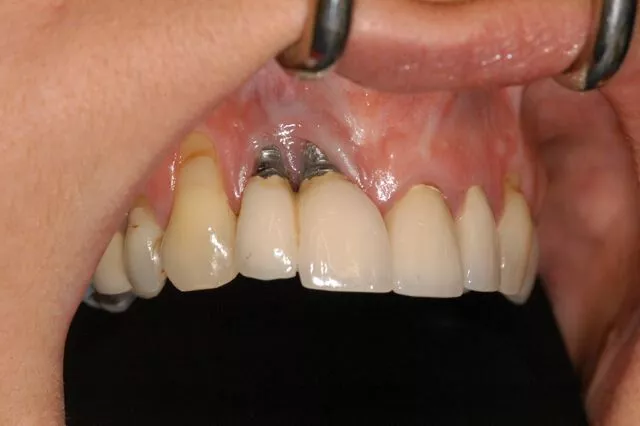Dental Implant Failure: Common Causes and How to Prevent Implants from Failing
Dental implants are a popular and effective way to replace one or more missing teeth. However, they are not without their risks—one of which is implant failure. While the success rate for dental implants is high, implant failure does occur. In this blog post, we will explore some of the common causes of dental implant failure and how you can prevent your implants from failing. If you are considering dental implants, or have already had them placed, read on to learn more about this potential complication and what you can do to avoid it.
What are dental implants?
Dental implants are teeth that are implanted into the jawbone to replace missing or damaged teeth. The implant is made of a metal post that is placed into the jawbone, and a tooth-colored crown is placed on top of the post.
What are the signs that my implant is failing?
Make an appointment with your dentist if you are experiencing any of these symptoms after receiving dental implants:
- When you experience severe pain or discomfort after the procedure: it is normal to experience intermittent pain, but if you are experiencing a lot of discomfort a long time after the procedure, it is likely that your implant has failed. We recommend making an appointment if you are unsure whether your pain is normal part of the healing process – treating complications as early as possible reduces your risk of implant failure.
- If your gums are red and inflamed following implant surgery, this is a sign of infection and should be treated immediately.
- If your implants feel loose or wobbly, call your dentist right away. Loose implants are not a normal part of the procedure and should be addressed immediately.
- It is possible that something is amiss with your implant if you are experiencing pain when you eat. If you are experiencing pain while eating, something is amiss. If you ignore pain or discomfort, it will likely get worse and may become increasingly difficult to treat as time goes on.
Why do dental implants fail?
There are several reasons why dental implants may fail, although this is usually avoidable with proper care. The most common causes of dental implant failure are:
Inadequate osseointegration: This occurs when the implant doesn’t bond properly to the jawbone, which can happen if the implant is placed in an area with poor blood supply or if the surrounding bone is too soft.
Infection: If bacteria enter the implant site during surgery or afterwards, it can cause an infection that leads to implant failure. This is why it’s important to maintain good oral hygiene and see your dentist regularly after getting dental implants.
Overloading: Dental implants are designed to support a certain amount of force, so if they’re overloaded (for example, by biting into hard foods too soon after surgery), they can fail.
Mechanical stress: If the implant is placed in an area of high stress (such as the back molars), it may be more likely to fail.
How to prevent dental implant failure
Dental implants are a popular and effective way to replace missing teeth. However, they are not without risk. Dental implant failure is a relatively rare but potentially serious complication.
There are several common causes of dental implant failure, including infection, poor placement, and insufficient bone support. Fortunately, there are several things you can do to reduce your risk of implant failure.
First, it is important to choose an experienced and reputable implant dentist. Be sure to ask about their success rate with dental implants and whether they have experience placing implants in patients with similar conditions to yours.
Second, make sure you follow all pre- and post-operative instructions carefully. This includes taking antibiotics as prescribed and avoiding smoking or using other tobacco products during the healing process.
Finally, attend all scheduled follow-up appointments so your dentist can monitor your progress and identify any early signs of problems. By taking these precautions, you can greatly reduce your risk of dental implant failure.

